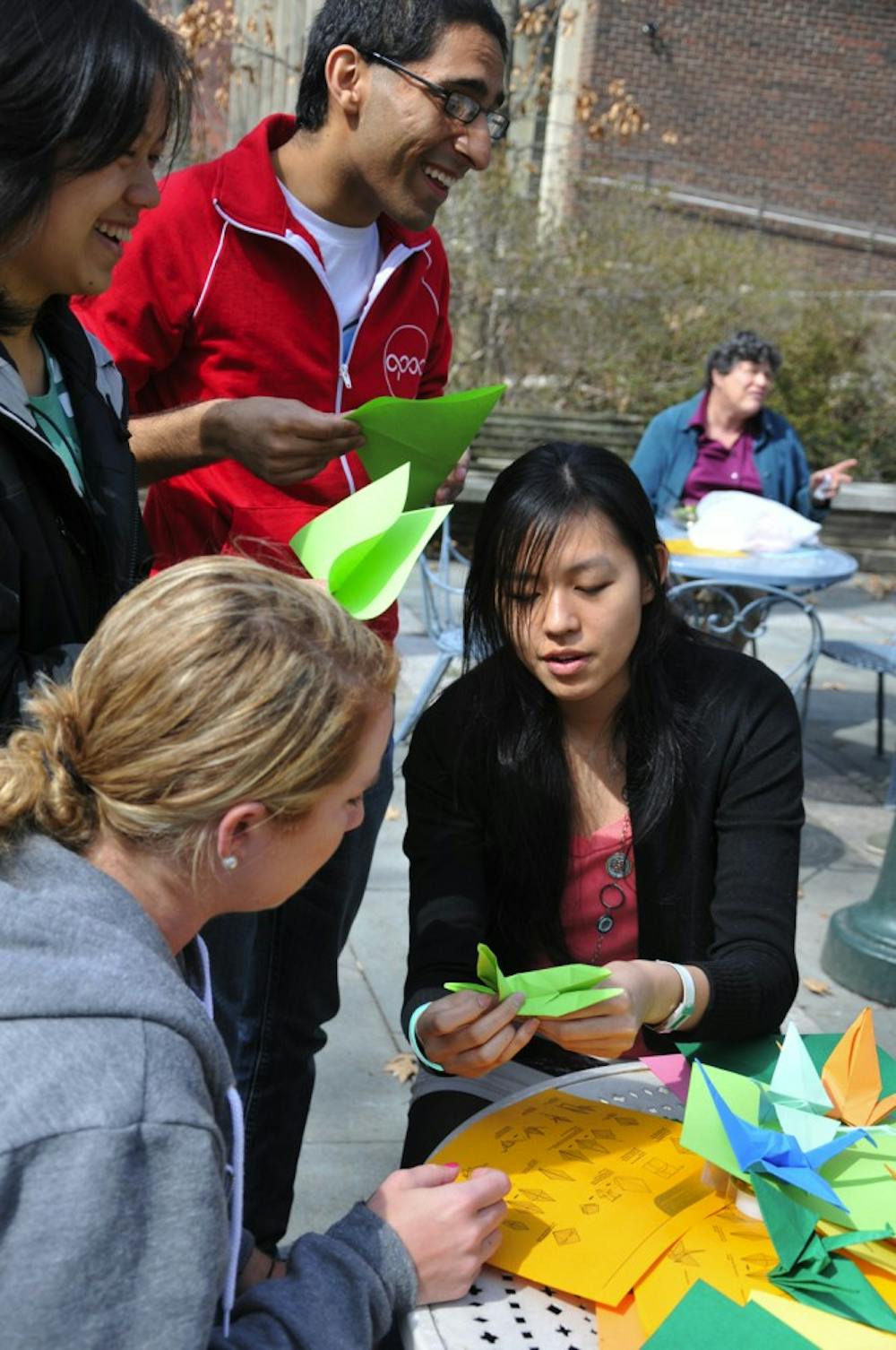Brian Crandall was about to enter a Tokyo subway station on the afternoon of March 11 when the ground began to shake and he saw some people run up the stairs.
“I thought it was just another train above or below ground and people were just running to catch [it]. I’m from New York … that’s normal,” he said.
It wasn’t until the rumblings amplified that he knew something was wrong.
“We saw a 40-story hotel and building sway back and forth about 10 to 20 feet in each direction. Other buildings had cranes on top of them, which were moving around to the point that we thought they would fall down,” he recalled.
Crandall and 160 other Wharton Master of Business Administration students on the annual Japan Trek cultural tour over spring break were spread throughout Tokyo at about 2:45 p.m. local time when the earthquake hit.
Everyone needed to be accounted for, Naoki Hirose — the head organizer of the trip — said.
Because cell phone signals were unreliable and not all participants were carrying phones, Hirose sent emails to confirm people’s safety and asked everyone to return to the hotel.
Meanwhile, Hirose and ten other trip organizers knocked on each participant’s hotel room door.
At about 9:30 p.m., all participants were safe and accounted for at the hotel, Hirose said.
“We spent hours wandering around the hotel. People were coming in staggered. Some people had to walk six or seven hours to get back to the hotel,” said Russell Gottfredson, one of the trip’s organizers.
Gottfredson, who was on a subway when the earthquake hit, said he felt the train shake. After an announcement that the subway was closing down, he got out and walked back to the hotel.
“Everyone in the city was walking back … the streets were so crowded. It was like refugees walking back to their houses,” he said.
Though the cell phone lines were congested, students used Skype and email at the hotel to get in touch with the University, their families and friends.
Prior to the trip, Hirose had registered all trip participants with Penn’s Global Activities Registry, a database of contact information for traveling members of the University. The Office of International Programs and the Wharton School had immediately reached out to them to confirm their safety.
“After the disaster, all the organizers intuitively felt like it was no longer our job to ensure that people have a fun time,” Gottfredson said. “Our main objective became getting home quickly, safely, with minimum amounts of stress.”
With the hotel lobby as their home base, the 11 student organizers, who were fluent in Japanese, took shifts to answer questions and offer translation and advice to the participants.
Transportation served as the next largest hurdle, as many flights were canceled and transportation to the airport — about two hours from Tokyo — was very limited.
“The subway doesn’t go directly to the airport, and some people took a cab which took eight to nine hours,” Gottfredson said.
The organizers advised participants to fly back on Sunday, when transportation to the airport would be better. Most did and there were no major problems.
“It was initially very stressful,” Crandall said. “Then it went from internalizing it to discussing it, taking comfort in it and bonding over it.” The earthquake “makes you appreciate what you have every day.”



